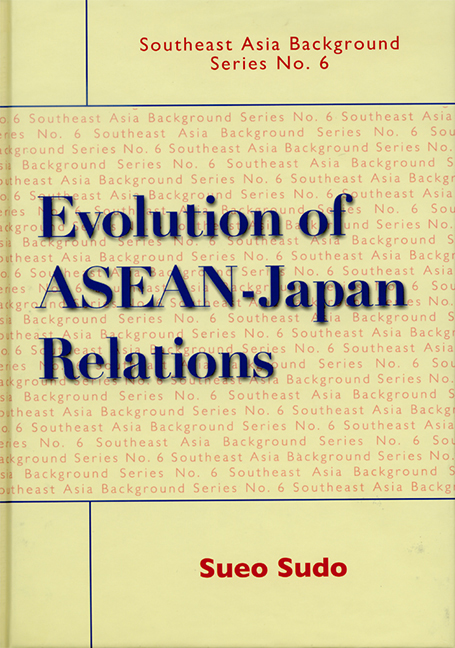1 - ASEAN Meets Japan
Published online by Cambridge University Press: 21 October 2015
Summary
Postwar relationships between Southeast Asia and Japan began in the early 1950s when Japan regained its sovereignty and embarked on war reparations negotiations with Burma (Myanmar), the Philippines, Indonesia and South Vietnam while offering “economic assistance” to other Southeast Asian countries. The nature of Japan's reparations, however, was largely influenced by “economic diplomacy” driven by the Yoshida Doctrine. Although supported by the United States, this economic policy towards Southeast Asia was contentious. In other words, in terms of the total amount and its contents, the reparations settlements were far from satisfactory to the Southeast Asian recipients.
Later, in the midst of the Vietnam War, five Southeast Asian countries (Indonesia, Malaysia, the Philippines, Singapore and Thailand) announced the Bangkok Declaration (the ASEAN Declaration) on 8 August 1967. It was the first indigenous regional organization where five countries as a group decided to put their region in order. When ASEAN was launched, the Japanese government reacted favourably, regarding its formation as an affirmation of growing Southeast Asian regionalism, and thereby also giving tacit encouragement to Tokyo's regional development strategy. Since Japan's pursuit of economic diplomacy was contingent on a favourable trading environment, a unified resource-rich Southeast Asia was quite attractive. Within the framework of the Conference of Economic Development in Southeast Asia initiated by the Japanese government in 1966, the Sato regime in Tokyo played a part in consolidating American Cold War strategy in the region.
However, ASEAN's credibility as a viable institution at this stage was tainted by many intra-regional problems, most notably the Philippine claims on Sabah. Although Malaysia and the Philippines withdrew their diplomatic representatives from each other's capitals in late November 1968, they stopped short of dismissing the utility of ASEAN. Through these intra-regional problems ASEAN sought to further strengthen its basis for regional cooperation. At the same time, major developments had been occurring in the international environment, such as the announcement in January 1968 of an accelerated withdrawal of British forces east of the Suez and the Nixon Doctrine in July 1969, which considerably enhanced the value of ASEAN as a vehicle for political cooperation.
- Type
- Chapter
- Information
- Evolution of ASEAN-Japan Relations , pp. 5 - 10Publisher: ISEAS–Yusof Ishak InstitutePrint publication year: 2005



